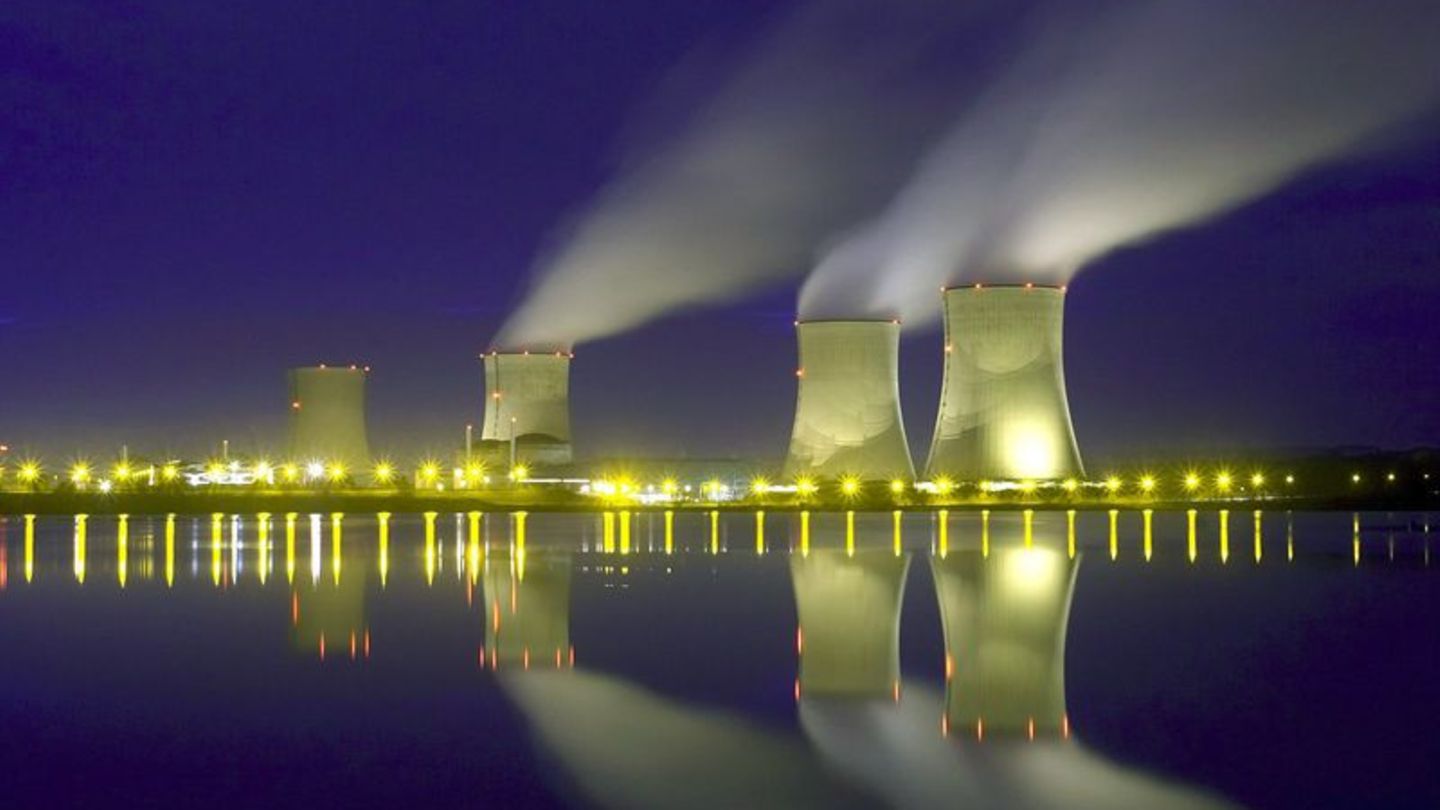In France, both the right and the left are considering withdrawing from the European electricity market. Does Germany now have to brace itself? A look at the facts gives the all-clear.
France’s extreme right is concerned about electricity supplies to other European countries. Does the result of the early parliamentary elections, in which Rassemblement National (RN) with Marine Le Pen became the third strongest party, mean a sigh of relief? At least the left sees the matter of exiting the European electricity market in a similar way. And the new left-wing alliance, La France Insoumise, has just won. Germany would be directly affected by electricity imports. How high are these? And: Is a French exit even realistic?
claim
France can stop supplying electricity to Germany.
Evaluation
It is not that easy.
Facts
The main concern of the people in France and therefore the most important issue in election campaigns is currently purchasing power. Le Pen’s right-wing nationalists, as well as the left-wing party La France Insoumise and the Communists, therefore regularly call for an exit from the European electricity market and suggest to people that France could supply itself more cheaply with its nuclear power and a tariff of its own choosing – so people would have more money in their wallets.
Le Pen also complained that the electricity prices agreed across Europe were at the expense of French industry, which had to pay more because Germany was facing supply problems due to its nuclear phase-out. The head of the Rassemblement National, Jordan Bardella, is currently calling for an exemption for France from the European rules on setting energy prices. However, this would not mean that France would decouple itself from its European partners.
Experts on France: Electricity prices will rise if France leaves
In fact, according to experts, including the president of the energy company Engie, Jean-Pierre Clamadieu, and the economics professor at the University of Paris Dauphine, Patrice Geoffron, France is dependent on the constant exchange of electricity in the European network, even if it exports more than it imports. If it were to leave the European electricity market, there would be a risk of power outages and France would have to invest heavily in additional power plants, which would drive up the price of electricity, say experts. In addition, France earns a lot of money from electricity exports, so there would be little point in cutting them off.
France could theoretically negotiate an exception to the European rules on setting energy prices with the EU; such an exception was made for Portugal and Spain during the energy crisis. However, due to the importance of the European electricity market for France, experts consider this to be counterproductive. If France were to withdraw completely from the European electricity market, it would be breaking European contracts and agreements. In practice, this would only be possible if France simply stopped implementing European agreements. This would result in punitive measures from Brussels.
The European electricity market is a matter of give and take
Germany and France are so-called electricity transit countries within the EU. This means that electricity is constantly imported and exported and passed on within the union to where it is needed. The common electricity market in Europe is intended to make it possible to save money and reduce emissions through the desired cooperation with other countries.
Concrete figures for Germany: According to data from the Fraunhofer Institute for Solar Energy Systems (ISE), Germany supplied around 26.2 terawatt hours (TWh) of electricity to other European countries this year up to July 8. On the other hand, the Federal Republic received 38.3 TWh from its neighbors.
For comparison: public net electricity generation in Germany (i.e. excluding the industry’s own supply) was around 234 TWh in the same period. Of this, just under five percent came from electricity imports.
There is a back and forth between France and Germany
A look at the exchange of electricity between the neighboring countries shows that Germany has so far imported more electricity from France in 2024 than it has exported to it. According to Fraunhofer data, Germany received 8.44 TWh from France by July 8 and delivered 1.62 TWh to France. This makes France one of the largest, if not the largest, exporters of electricity to Germany this year. Denmark is currently just in first place with 8.6 TWh coming to us.
Data cited by the Bundestag show that German-French energy cooperation can sometimes work the other way around: Between the end of November 2022 and the end of November 2023, Germany exported 14.2 terawatt hours of electricity to France and received 12 terawatt hours in the opposite direction.
Fraunhofer data on public net electricity generation 2024 Germany as an electricity transit country Bundestag on German-French energy cooperation Fraunhofer data on cross-border electricity trading
Source: Stern




